Looking Back: The 1991 Student Congress Election
The 1991 Oakland University Student Congress election at Oakland University reads like a story out of a fictional political thriller. Racism accusations, misuse of congress funds and possible election tampering were only some of the components of the race between Derek Wilczynski and Nate Wells.
Two candidates for student congress president were featured in an Oakland Post story on Nov. 6, 1991. These candidates were Derek Wilczynski, a former student congress member and then director of public relations of the Golden Key Society, and Nate Wells, the current executive assistant under then Student Congress President Michael Heintz.
Both candidates may have been good choices for OU, having laid out their plans about what they wanted to change and how they wanted to make the university better.
Some of Wilczyski’s goals included more student representation in the search for a new university president, as well as strengthening the mentor program for the Association of Black Students on campus.
“I would like to use congress’ resources and ABS’ representation and the knowledge and hard work of both,” Wilczynski said in the article.
Well’s plans included improvements to financial aid on campus, addressing the low minority graduation rate and bringing cable to the residence halls on campus.
The first controversy in this election arose in late November, when another student congress member Dave Wisz circulated memos between Wells and President Heintz around campus. The memos were about Wells’ violations of congress policies. Wells said that the distribution was not out of political concern, but was a racist act.
“It’s common knowledge that he [Wisz] is blatantly prejudice,” Wells said in the story ran by The Post.
The memos went into detail about Well’s infractions, including tardiness to congress meetings and his use of a student congress account to obtain an OU Motor Pool vehicle for personal business. Wells did reimburse the congress for his use of the vehicle after the fact.
“All students have the right to know the details and past histories of people who are representing them,” Wisz said.
The memo also detailed a bill that Wells wrote that would provide tuition as well as room and board for the OUSC president.
Wells commented that the proposal would not go into effect until after he graduated and would not affect his position if elected.
The second scandal of the election came from The Validations Committee overseeing the election, when the entire 1991 student congress elections were declared invalid due to violations of election guidelines.
The reason for the invalidation was due to “improper handling and exposure of the ballots to a presidential candidate,” said Stephanie R. Anthony, Validations Committee chairperson in a memo on Monday, Nov. 25, 1991.
Instead of being held in the Public Safety building, the ballots were stored in a locked student congress office, that both Wilczynski and Wells had access to.
“So be it if it was against the constitution,” Wells said, agreeing with the committee’s decision.
Wilczynski was less than pleased with the decision, saying that the committee ignored precedent and other elections when the ballots were stored in OUSC offices.
Over 1,000 students that voted in the previous election were mailed about the new election dates, with the new dates being between Dec. 3 and Dec. 6, 1991. So once again, students went and voted for who they thought should be the next student congress president.
In the end, the race came down to 10 votes. Wilczynski won the election by a 10 vote margin, defeating Wells and making him the next student congress president.



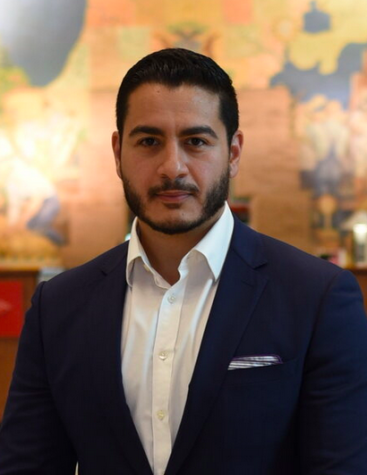
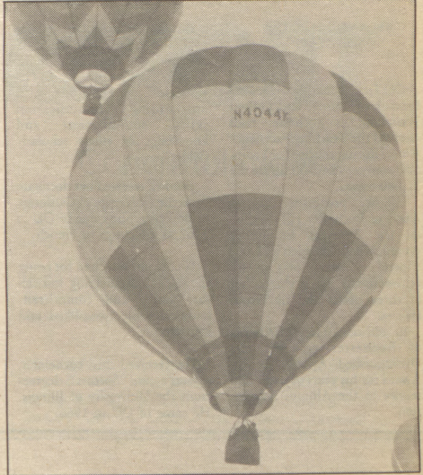
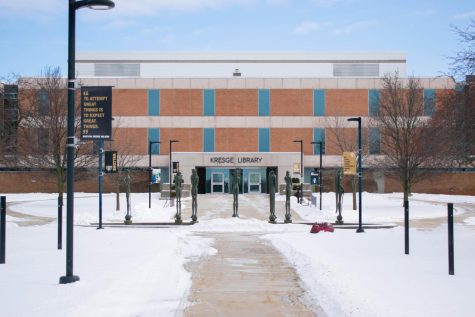
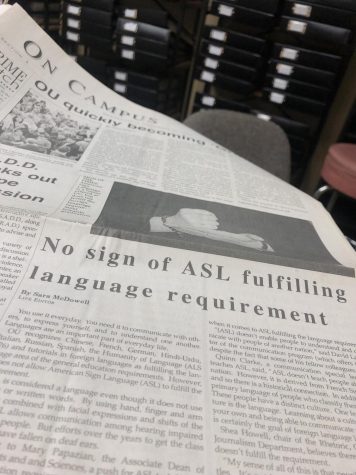
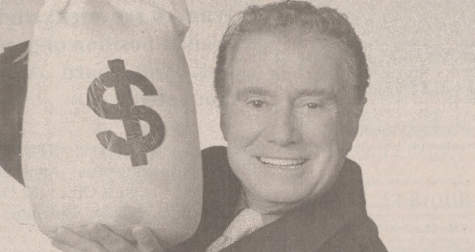
Nate Wells • Sep 24, 2021 at 9:01 PM
Thanks for sharing this story it’s great to see elections are so much better organized in modern times then they were 30 years ago.